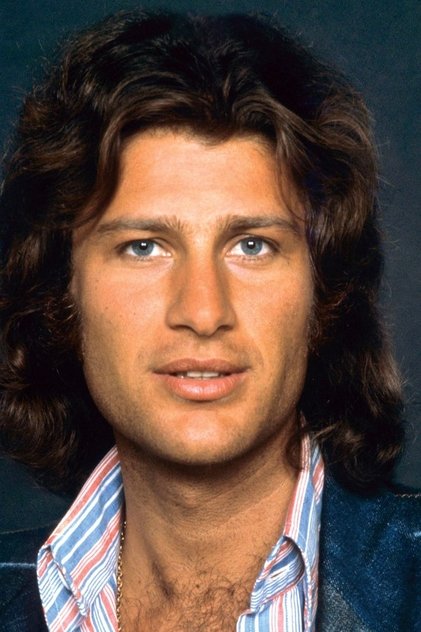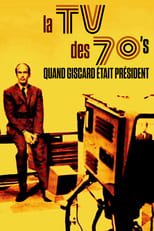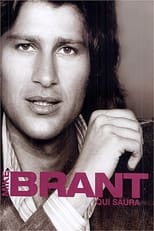

Mike Brant
Born: February 2, 1947
Died: April 25, 1975
in Nicosia, Cyprus
Died: April 25, 1975
in Nicosia, Cyprus
Mike Brant (born Moshe Michael Brand, Hebrew: משה מיכאל ברנד, 1 February 1947 – 25 April 1975) was an Israeli singer and songwriter who achieved fame after moving to France. His most successful hit was "Laisse-moi t'aimer" ("Let Me Love You"). Brant died by suicide at the height of his career by jumping from a window of an apartment in Paris. He was known for his vocal range going from baritone to high tenor and also a very high and powerful falsetto.
Mike Brant's Jewish parents were from Poland. His mother, Bronia Rosenberg, originally from Łódź, was a survivor of the Auschwitz concentration camp. His father, Fishel Brand, from Biłgoraj, had been a resistance fighter during World War II, and was 20 years his wife's senior. His parents married following the war, and they applied to emigrate to Israel, but were initially denied permission. They attempted to reach Israel by sea on an Aliyah Bet ship which was intercepted by the British, and were sent to a British internment camp for illegal Jewish immigrants who had attempted to enter israel at Famagusta, Cyprus. Mike was born in Cyprus on 1 February 1947. In September 1947, eight months before Israeli independence, the family arrived in Israel after being included in a British quota for Jewish immigration. They initially settled in kibbutz Gvat but soon moved to Haifa, where Mike grew up. In 1950, his younger brother Zvi was born. Mike Brant did not start speaking until six years of age. During his childhood, he loved to sing and dreamed of being a famous musician. Some of his early musical exposure came while attending synagogue, where he was exposed to music through prayers and religious hymns. He told his family and friends that when he grew up he'd be "a star... or a tramp!" He joined his school's choir at age 11, becoming the only boy to do so. He did not integrate well in school, and at age 13 moved to kibbutz Gesher as a boarder, where he studied and worked in agriculture for two years before returning to his family home in Haifa, claiming that life on the kibbutz did not suit him. He subsequently worked in a variety of casual jobs, including as a guard at the Clandestine Immigration and Naval Museum. He also took drama lessons at the Haifa Theater. ...
Source: Article "Mike Brant" from Wikipedia in English, licensed under CC-BY-SA 3.0.
Mike Brant's Jewish parents were from Poland. His mother, Bronia Rosenberg, originally from Łódź, was a survivor of the Auschwitz concentration camp. His father, Fishel Brand, from Biłgoraj, had been a resistance fighter during World War II, and was 20 years his wife's senior. His parents married following the war, and they applied to emigrate to Israel, but were initially denied permission. They attempted to reach Israel by sea on an Aliyah Bet ship which was intercepted by the British, and were sent to a British internment camp for illegal Jewish immigrants who had attempted to enter israel at Famagusta, Cyprus. Mike was born in Cyprus on 1 February 1947. In September 1947, eight months before Israeli independence, the family arrived in Israel after being included in a British quota for Jewish immigration. They initially settled in kibbutz Gvat but soon moved to Haifa, where Mike grew up. In 1950, his younger brother Zvi was born. Mike Brant did not start speaking until six years of age. During his childhood, he loved to sing and dreamed of being a famous musician. Some of his early musical exposure came while attending synagogue, where he was exposed to music through prayers and religious hymns. He told his family and friends that when he grew up he'd be "a star... or a tramp!" He joined his school's choir at age 11, becoming the only boy to do so. He did not integrate well in school, and at age 13 moved to kibbutz Gesher as a boarder, where he studied and worked in agriculture for two years before returning to his family home in Haifa, claiming that life on the kibbutz did not suit him. He subsequently worked in a variety of casual jobs, including as a guard at the Clandestine Immigration and Naval Museum. He also took drama lessons at the Haifa Theater. ...
Source: Article "Mike Brant" from Wikipedia in English, licensed under CC-BY-SA 3.0.
Movies for Mike Brant...

Title: La TV des 70's : Quand Giscard était président
Character: Self (archive footage)
Released: January 7, 2022
Type: Movie
In May 1974, Valéry Giscard d'Estaing became President of the Republic and wanted to bring about a new era of modernity. One of his first decisions was to break up the ORTF with the creation of three new television channels: TF1, Antenne 2 and FR3. Three new public channels but autonomous and competing. It is a race for the audience which is engaged then, and from now on the channels will make the war! This competition will give birth to a real golden age for television programs, with variety shows in the forefront. The stars of the song are going to invade the living rooms of the French for their biggest pleasure. This unedited documentary tells the story of the metamorphosis of this television of the early 1970s, between freedom of tone, scandals, political intrigues and programs that have become mythical.


Title: Archives secrètes
Character: Self (archive footage)
Released: September 9, 2021
Type: TV




Title: Système 2
Character: Self (archive footage)
Released: January 19, 1975
Type: TV


Title: Midi Première
Character: Self (archive footage)
Released: January 6, 1975
Type: TV
Midi Première is a French variety show presented by Danièle Gilbert, directed by Jacques Pierre and broadcast from January 6, 1975 until January 1, 1982 on TF1. The program was generally broadcast between 12:15 p.m. and 12:55 p.m., then giving way to the 1:00 p.m. TV news. However, the broadcast schedule could change, depending on the guests, and the setting where the recording of the program was shot. Certain performances by artists who have become cult like the one where Ringo jostles with a demonstrator in interpretation (1977), that of Dalida with the title There is always a song with the soundtrack that does not start, twice, at the right speed (1978), Claude François and his Clodettes, who, in the provinces, are unable to join "the set" in order to interpret his song, the latter being taken by the crowd of delirious fans (summer 1977) . The group Supertramp performed there with the title "Dreamer" on March 8, 1975.










